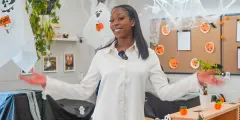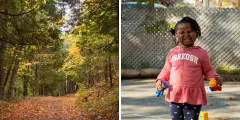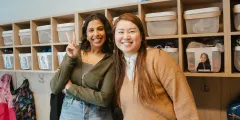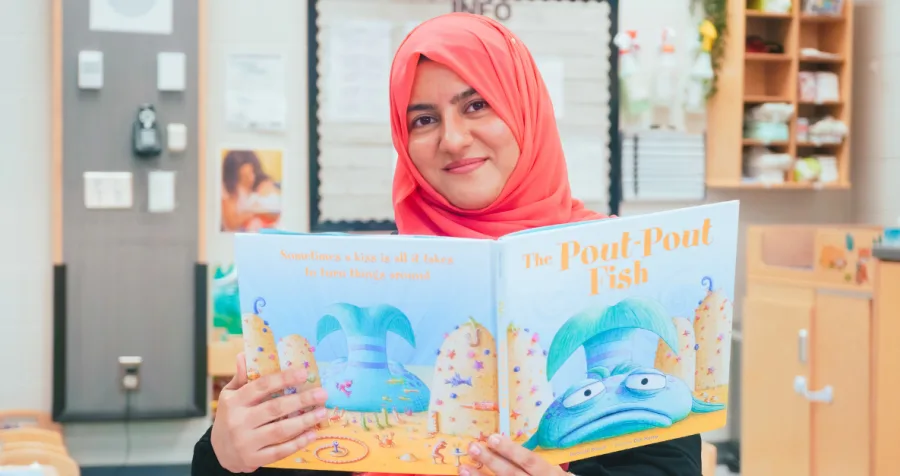
Educators are at the heart of every YMCA Child Care Centre. They not only care for children, but they also invest time in building genuine relationships with them as play partners.
The YMCA Playing to Learn™ curriculum is the basis for every activity in the YMCA infant, toddler, and preschool classrooms. Meet a Y Educator is a series that shines a light on dedicated YMCA educators. As you read on, you’ll learn about the intention behind each setup in a classroom to encourage play-based learning and see it through the eyes of one of the Y's educators, Muneeza.
Meet Muneeza
Muneeza is a Registered Early Childhood Educator (RECE) who works with infants at a YMCA Child Care Centre in Durham. She absolutely loves it! Every day, her room is filled with incredible milestones: She witnesses children learning to crawl, taking their first steps, learning their first words, and exploring the world around them. Being part of a child’s early development is joyful for Muneeza.
She’s worked as an RECE for three years since completing her bachelor's degree in early childhood education. Muneeza says her experience at the Y has been enriching. She is immensely grateful for the opportunity to work with various age groups and gain valuable insights and child care skills.
Muneeza answered questions about her life as a YMCA RECE. From a fun classroom memory that still makes her laugh to her advice for educators starting in the field, check out this rapid-fire Q&A.
Explore a creative, sensory-based classroom
Thoughtful and creative, Muneeza designs play environments with exciting sensory experiences for infants based on the YMCA’s Playing to Learn™ Curriculum. Take a look.
Three creative setups in Muneeza’s classroom
All Y Child Care classroom activities stem from the children’s interests. Educators like Muneeza tune into their likes through observation and create weekly activities accordingly. The focus is on sensory-based activities in the infant room, where children are typically under age one.
1. Painting a blowfish
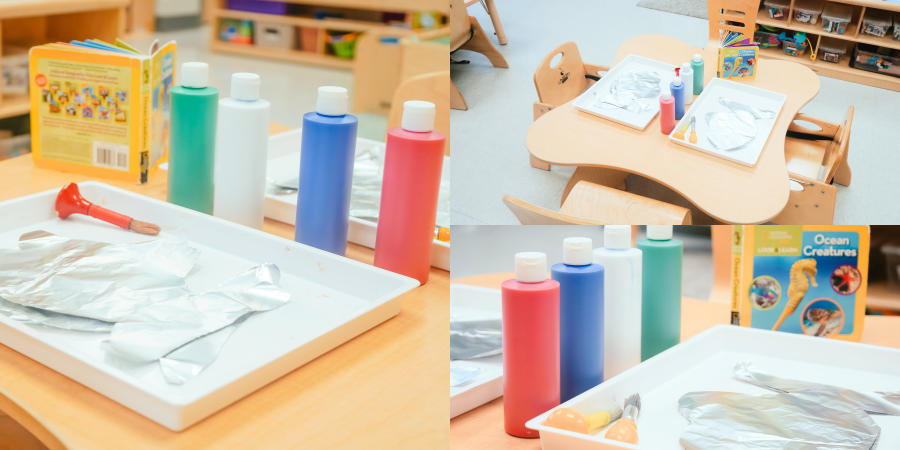
What you may see: Bottles of paint, foil paper, and paint brushes.
What Muneeza saw: “Most of our activities in the infant room revolve around sensory experiences, recognizing that young children absorb information about their surroundings through their senses. Given that most infants haven't started talking yet, it requires keen observation to identify their interests. Upon discovering their newfound fascination with the word "fish" during a shared animal book reading, we decided to incorporate this interest into our activities. Engaging in the art activity of painting tin foil puffer fish, children will grip the chubby paintbrush using their palmar grasp, thereby honing their fine motor skills. Additionally, they will explore the sensory experience of touch and the sound of the tin foil. Who knows, they might even use their tiny fingers to apply the paint to the fish!”
2. Exploring the ocean
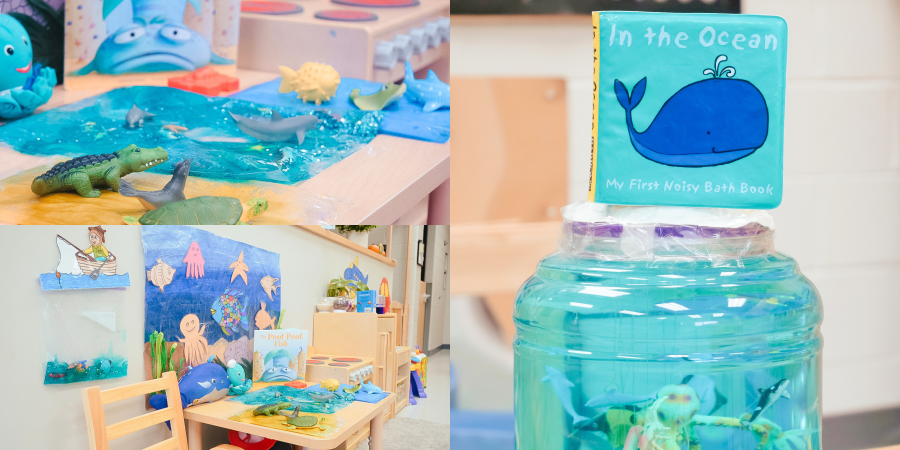
What you may see: Aquatic toy animals.
What Muneeza saw: "Our ocean-themed sensory area has transformed into an underwater spectacle. We've made a fish aquarium within a jar, suspending fish and other marine creatures with transparent strings. As children gaze into the blue waters, their curiosity may be aroused, fostering a love for learning the names of diverse aquatic animals and enhancing their language skills. Complementing this, we've introduced sensory bags filled with blue gel and glitter, containing hidden ocean animals for tactile exploration. Children can manipulate, rub, and squeeze the bags to discover creatures both inside and outside, enhancing their tactile stimulation.”
3. Pulling and pushing vehicles
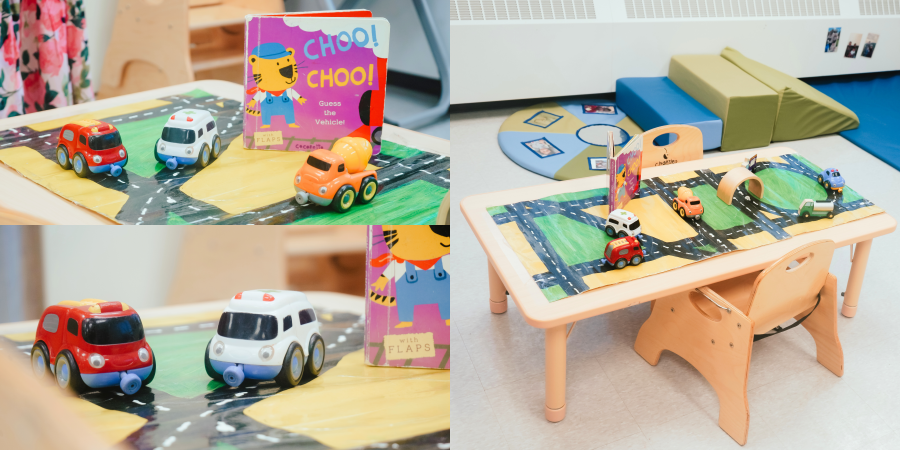
What you may see: Cars on a road placemat.
What an educator like Muneeza sees: “This week's skill focus for infants centres around the fundamental actions of pulling and pushing. Utilizing a road map and miniature cars, children engage in activities that promote hand-eye coordination and attention span development as they pull and push the cars. Infants also exercise their physical abilities, as they will learn to stand beside the table, strengthening their growing motor skills.”
Y educators truly understand the difference play-based learning can make in a child’s development. As play partners, Y educators observe children’s interests and develop activities that involve play. After all, play is what children naturally do. And for educators like Muneeza, being a part of a child’s growth and development by being a play partner is not just a career but a life’s calling.


